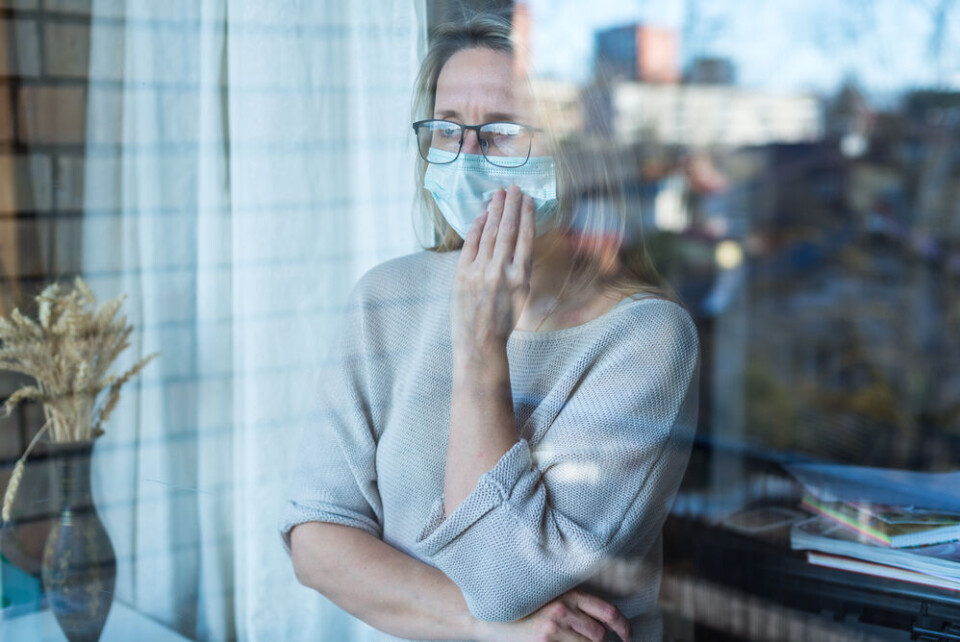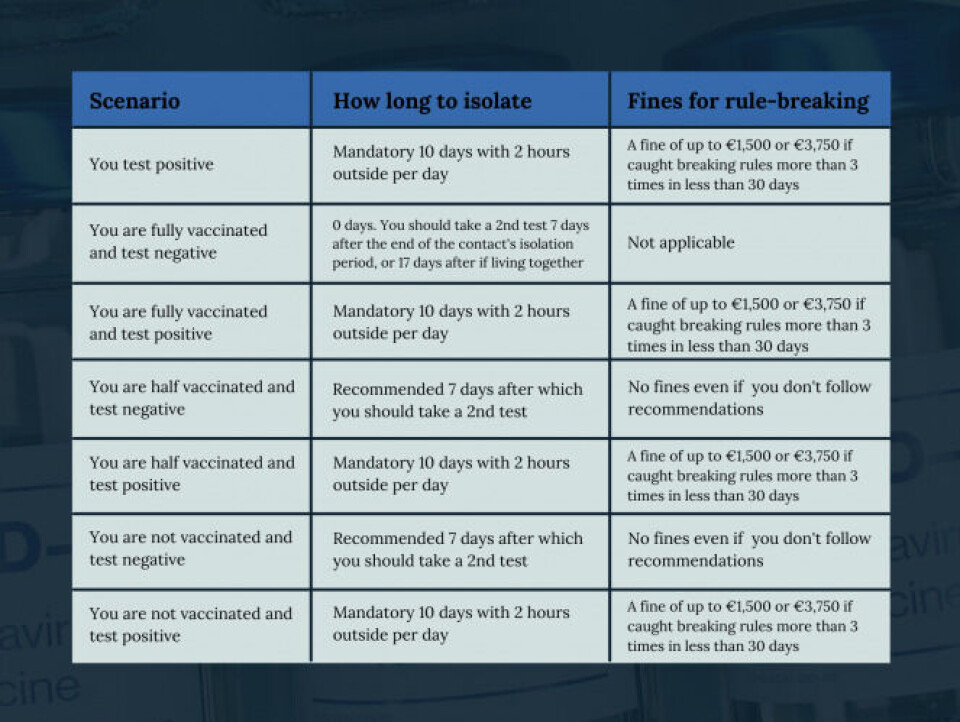-
Red flood alerts continue in south-west - and more heavy rain expected
Garonne river is particularly affected. French weekly weather forecast February 16 - 20
-
Why your car insurance in France is expected to increase this year
Premiums are forecast to rise by four to six percent in 2026
-
Two Britons killed in avalanche in French Alps were with an instructor
French skier also died in the disaster at Val d’Isère on Friday February 13
Covid rules: When are you required to self-isolate in France?
We explain in what situations you need to quarantine, for how long, and what you risk if you do not comply plus the rules for vaccinated people who are flagged as contact cases

*Update August 6. This article is no longer accurate following an update by France's constitutional court. Please read our article on that here.
People who are not vaccinated and who test positive for Covid in France are now obliged to quarantine at home – previously, this was only recommended.
There are different rules for when a person must self-isolate, depending on if they are fully vaccinated, partially vaccinated, or unvaccinated against Covid-19.
There are specific fines and consequences for each.
The Assurance Maladie will make checks and alert prefects of suspicious cases.
Those breaking the rule face a fine of up to €1,500. People who are self-isolating can only leave their homes between 10:00 and 12:00, and in emergencies.
Our table below shows in what circumstances you have to self-isolate depending on your vaccination status.

Unvaccinated and travelling to France?
Unvaccinated and travelling from amber list country: Must carry out a voluntary seven-day self-isolation at a location of your choosing upon entering the country.
Unvaccinated and from red list country: Must carry out a 10-day quarantine, which will be subject to random police checks.
Fully vaccinated and a contact of someone with Covid?
If you are fully vaccinated and are flagged as having been in prolonged contact with someone who has tested positive for Covid, you no longer face an obligatory self-isolation period.
However, you must:
- Take a PCR or antigen test after you have been alerted. If negative, there is no need to quarantine.
- Alert people that you have been in contact within the 48 hours since your last ‘risky’ contact with the person who has tested positive.
- Limit social interaction in the week following your last contact with the infected person, especially where mask-wearing is not possible.
- Wear a mask in public (and in private if you live with the infected person)
- Avoid people who may be at risk of serious forms of Covid due to their health conditions.
- Take another test immediately if you notice Covid symptoms developing.
- Take another Covid test seven days after the end of the isolation period of the person who tested positive.
- If you live with the person, you must take a test 17 days after the start of their symptoms (or after the date of their positive test if they do not have any). If it is positive, you will be obliged to quarantine for 10 days – see the table above for rules.
People who are not fully vaccinated will need to follow the rules set out below.
Unvaccinated and a contact of someone with Covid?
You should take an antigen or PCR test immediately.
- If the test is negative, you must respect a seven-day self-isolation period.
- You should also alert people you have been in contact with in the 48 hours since your last ‘risky’ contact with the person who tested positive.
The self-isolation period starts from the date of the last risky contact with the infected person if you can strictly isolate from the person.
If you cannot strictly isolate from them, the period lasts seven days from the end of their symptoms, or 17 days after the start of their symptoms (or from the date of the positive test if the person has no symptoms).
This is because for someone with Covid-19 symptoms, the recovery comes 10 days after the onset of symptoms.
After the self-isolation period and if you are still without symptoms, you must take another test (antigen or PCR). If this test is negative, your self-isolation can be ended.
What makes someone a contact case?
- You share the same living space as the confirmed or probable positive case.
- You have direct face-to-face contact with someone positive with Covid-19, within one metre, for any length of time. People you encounter briefly in a public space do not count.
- You receive care or medical aid from someone positive with Covid-19.
- You share a confined space (office or meeting room, personal vehicle, etc.) for at least 15 consecutive or cumulative minutes over 24 hours with a positive case, or you have been face-to-face with a positive case during several minutes, when they have been coughing or sneezing.
- You are a student or teacher in the same school class as a positive case (nursery, primary, secondary, university tutorial group).
How do you know if you are a contact case?
Anyone who tests positive for Covid-19 will be asked to give France’s health insurance agency l’Assurance Maladie a list of their recent close contacts.
Assurance Maladie will then contact these people.
You can also be notified via France’s track and trace phone application TousAntiCovid.
Related stories
France Covid checklist: Isolation, mask-wearing and other new rules
UK-France quarantine hits families more than tourists - travel boss
























